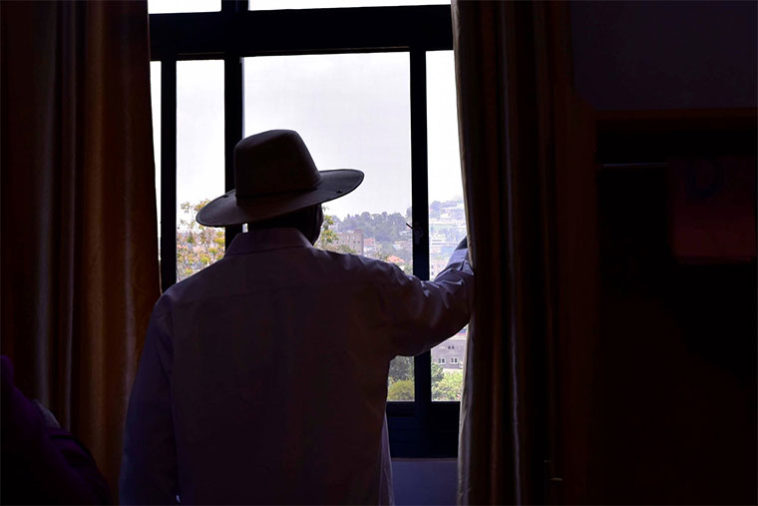Last week I wrote about a couple of things we shall have to do in picking up our rags from wherever Mr Museveni’s rule will have left us in what now appears to be a curve of diminishing returns. Certainly, for anyone keen, that point is not very far from now.
My fear is that because of all that is happening in Uganda today, and our presidentialist system, we have put a lot of attention on Museveni’s exit so much so that we haven’t had time to reflect on Uganda after him.
We might suddenly get shocked when he is gone and say to ourselves: ‘he is gone, is that it?’ And his worst undoing is that, in doing all he boasts to have achieved, he doesn’t seem to be bothered about sustainability after him – let alone not being bothered about the corrosion of political integrity down to the smallest administrative unit.
Nevertheless, the idea here is that, when that time comes when he is just but a topic in history, we should not get lost in excitement only to find ourselves treading down the same road that is paved by putting too much trust in the goodwill of a ‘liberator’.
Uganda has had enough lessons in history on not putting trust in individuals, and it is up to us what we learn. If we ignore them, it will be a cycle of joy and tears.
Whoever it is you have in mind; be it Gen Muntu, Hon Mao, Dr Besigye, or Hon Kyagulanyi, from our experience, there is absolutely no guarantee that they will hold onto what they are or promise now if they are not controlled by checks beyond their power to bend. Bitten by a snake before, it makes perfect existential sense to be scared of a rope, until you are sure it’s just a rope.
In a way, Museveni is a victim of the high hopes people had in him, just as the hopes in whoever comes in might be after this long wait.
Museveni has had all the benefit of time to prove what he promised; but at a certain point, and naturally so, the more time he has added, the more he has dented his legacy. In reverse of Jesus’ statement, it is like Museveni had said to himself that ‘I can build this temple and break it down’.
But, on a good note, we have also learnt that most new presidents (pre)tend to be pro-masses and are more eager to be popular in their first few years in office. Even Amin was, before he became terribly paranoid. The entry period is the time we should use to tighten up systems, such that if power is to later get to the new president’s head, the country doesn’t just helplessly cry betrayal.
Reading the preamble and the provisions of the 1995 Constitution (before amendments), one notices that it was informed by Uganda’s history. Attempts were made to fill some of the loopholes that had put Uganda in its past challenges.
One of the vivid measures was to ensure that no president would overstay in office as to make the country desperate again. That if the advantages of incumbency made it difficult to remove a sitting president, at least the country knew that term limits or age limit will catch up with him/her.
But while putting all these in place, so much was tragically assumed about the goodwill of Mr Museveni at the time. Perhaps, it is because we had never imagined the possibility of a choir parliament that would become the president’s tail. A lot was assumed about the quality of members of parliament Uganda would have, partly basing on the high calibre of the Constituent Assembly.
Now that we know that any ‘liberator’ can gradually end up in the belly of power as a stranger to their old self and that parliament can be diluted like a poor man’s alcohol, one of our fundamental tasks will be to fix these gaping holes.
The challenge with not sorting these elements of government first is that they will cripple everything else. Separation of powers, which is a crucial aspect for accountability in governance, will be impossible – thus extending breakdown to social service systems.
But, given that all the above changes will depend on the quality of the parliament in place, how shall we improve that House?
Considering that we may not be able to reasonably tidy up parliament in the immediate, the first post-Museveni parliament will (should) work under concerted public pressure for the above changes. Promisingly, no post-Museveni president is likely to have as much historical privilege and capacity to camouflage as mystical. Public fear is likely to be less, and civic agitation higher.
Nevertheless, in the nearest possible, we shall have to sanitise parliament by raising the bar again and trimming down its numerical obesity. This might take some time because, even though education levels matter a lot, the problem is not mostly about that.
Many terrible disappointments in that House hold a first degree and above. Degrees do not necessarily breed integrity, which is a big part of our problem.
Neither can we blame it on the voters for electing lukewarm MPs. With a few exceptions, the monetarisation of our politics, championed by NRM, and the loss of trust in parliament has led many voters to say that ‘any person we vote is as good as the other’.
So, we give another a turn to eat, or the highest bidder takes the vote. How shall we rehabilitate all this mess if the same actors are in the house to cushion themselves?
(To be continued next week).
Originally published on observer.ug
This post was created with our nice and easy submission form. Create your post!




